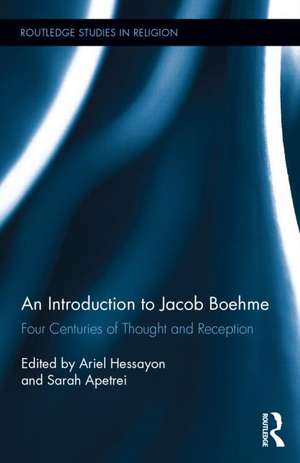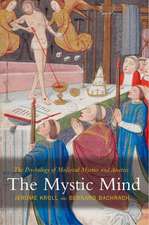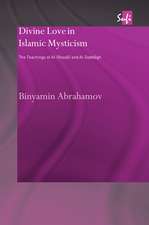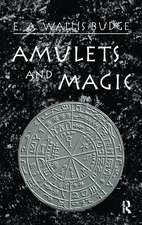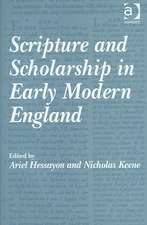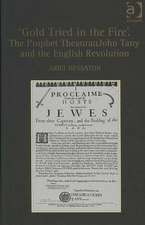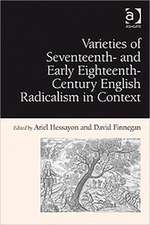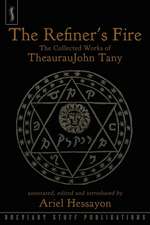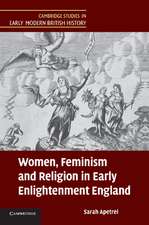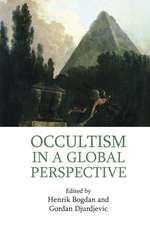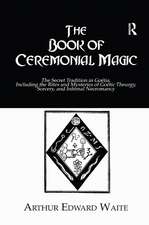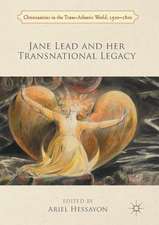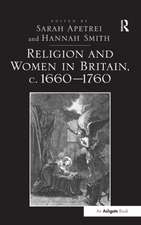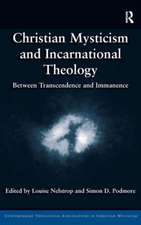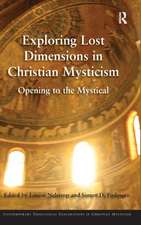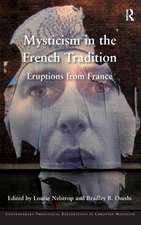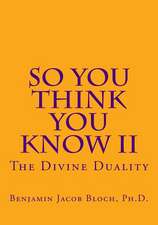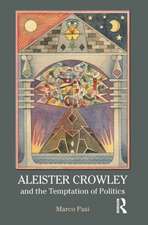An Introduction to Jacob Boehme: Four Centuries of Thought and Reception: Routledge Studies in Religion
Editat de Ariel Hessayon, Sarah Apetreien Limba Engleză Hardback – 18 iul 2013
Din seria Routledge Studies in Religion
-
 Preț: 311.07 lei
Preț: 311.07 lei -
 Preț: 343.42 lei
Preț: 343.42 lei - 5%
 Preț: 1224.15 lei
Preț: 1224.15 lei -
 Preț: 311.41 lei
Preț: 311.41 lei - 9%
 Preț: 1008.20 lei
Preț: 1008.20 lei -
 Preț: 312.22 lei
Preț: 312.22 lei -
 Preț: 311.22 lei
Preț: 311.22 lei -
 Preț: 310.16 lei
Preț: 310.16 lei -
 Preț: 310.03 lei
Preț: 310.03 lei -
 Preț: 311.59 lei
Preț: 311.59 lei -
 Preț: 310.65 lei
Preț: 310.65 lei - 9%
 Preț: 935.34 lei
Preț: 935.34 lei -
 Preț: 311.41 lei
Preț: 311.41 lei -
 Preț: 362.55 lei
Preț: 362.55 lei - 26%
 Preț: 850.54 lei
Preț: 850.54 lei - 18%
 Preț: 1058.79 lei
Preț: 1058.79 lei - 26%
 Preț: 819.90 lei
Preț: 819.90 lei -
 Preț: 472.72 lei
Preț: 472.72 lei -
 Preț: 398.18 lei
Preț: 398.18 lei -
 Preț: 482.53 lei
Preț: 482.53 lei -
 Preț: 487.37 lei
Preț: 487.37 lei -
 Preț: 436.87 lei
Preț: 436.87 lei -
 Preț: 369.73 lei
Preț: 369.73 lei - 25%
 Preț: 854.33 lei
Preț: 854.33 lei - 18%
 Preț: 1112.21 lei
Preț: 1112.21 lei - 26%
 Preț: 849.77 lei
Preț: 849.77 lei -
 Preț: 418.78 lei
Preț: 418.78 lei -
 Preț: 485.40 lei
Preț: 485.40 lei - 26%
 Preț: 846.09 lei
Preț: 846.09 lei - 18%
 Preț: 1059.48 lei
Preț: 1059.48 lei -
 Preț: 485.40 lei
Preț: 485.40 lei - 18%
 Preț: 1113.25 lei
Preț: 1113.25 lei -
 Preț: 491.26 lei
Preț: 491.26 lei - 18%
 Preț: 1113.12 lei
Preț: 1113.12 lei - 18%
 Preț: 1056.28 lei
Preț: 1056.28 lei - 18%
 Preț: 707.26 lei
Preț: 707.26 lei - 18%
 Preț: 1003.30 lei
Preț: 1003.30 lei - 25%
 Preț: 823.08 lei
Preț: 823.08 lei -
 Preț: 433.26 lei
Preț: 433.26 lei - 18%
 Preț: 1065.75 lei
Preț: 1065.75 lei -
 Preț: 430.37 lei
Preț: 430.37 lei
Preț: 1113.95 lei
Preț vechi: 1358.47 lei
-18% Nou
Puncte Express: 1671
Preț estimativ în valută:
213.21€ • 221.75$ • 178.67£
213.21€ • 221.75$ • 178.67£
Carte tipărită la comandă
Livrare economică 13-27 martie
Preluare comenzi: 021 569.72.76
Specificații
ISBN-13: 9780415843577
ISBN-10: 041584357X
Pagini: 332
Ilustrații: 9 black & white halftones
Dimensiuni: 152 x 229 x 25 mm
Greutate: 0.59 kg
Ediția:1
Editura: Taylor & Francis
Colecția Routledge
Seria Routledge Studies in Religion
Locul publicării:Oxford, United Kingdom
ISBN-10: 041584357X
Pagini: 332
Ilustrații: 9 black & white halftones
Dimensiuni: 152 x 229 x 25 mm
Greutate: 0.59 kg
Ediția:1
Editura: Taylor & Francis
Colecția Routledge
Seria Routledge Studies in Religion
Locul publicării:Oxford, United Kingdom
Public țintă
Postgraduate and UndergraduateCuprins
1. Introduction: Boehme’s legacy in perspective Ariel Hessayon and Sarah Apetrei 2. Boehme’s Life and Times Ariel Hessayon 3. Radical Reformation and the Anticipation of Modernism in Jacob Boehme Andrew Weeks 4. Boehme’s Intellectual Networks and the Heterodox Milieu of his Theosophy, 1600–1624 Leigh T. I. Penman 5. Jacob Boehme’s Writings during the English Revolution and Afterwards: Their Publication, Dissemination, and Influence Ariel Hessayon 6. Did Anyone Understand Boehme? Nigel Smith 7. Jacob Boehme and the Anthropology of German Pietism Lucinda Martin 8. "No New Truths of Religion": William Law’s Appropriation of Jacob Boehme Alan Gregory 9. Böhme and German Romanticism Kristine Hannak 10. Boehme and the early English Romantics Elisabeth Jessen 11. The Russian Boehme Oliver Smith 12. Hegel’s Reception of Jacob Boehme Glenn Alexander Magee 13. H. L. Martensen on Jacob Boehme George Pattison 14. The Place of Jacob Boehme in Western Esotericism Arthur Versluis 15. Conclusion: Why Boehme Matters Today Bruce B. Janz
Recenzii
"This companion will prove an invaluable resource for all those engaged in research or teaching on Jacob Boehme and his readers, as historians, philosophers, literary scholars or theologians. Boehme is 'on the radar' of many researchers, but often avoided as there are relatively few aids to understanding his thought, its context and subsequent appeal. This book includes a fine spread of topics and specialists." – Cyril O’Regan, University of Notre Dame, USA
Descriere
This volume brings together for the first time some of the world’s leading authorities on the German mystic Jacob Boehme, to illuminate his thought and its reception over four centuries for the benefit of students and advanced scholars alike. Boehme’s theosophical works have influenced Western culture in profound ways since their dissemination in the early 17th Century, and these interdisciplinary essays trace the social and cultural networks as well as the intellectual pathways involved in Boehme’s enduring impact. The chapters range from situating Boehme in the 16th Century Radical Reformation, to discussions of his significance in modern theology. They explore the major contexts for Boehme’s reception including the Pietist movement, Russian religious thought and Western esotericism, as well as focusing more closely on important readers: the religious radicals of the English Civil Wars and the later English Behmenists; literary figures such as Goethe and Blake, and great philosophers of the modern age, among them Schelling and Hegel. Together, the chapters illustrate the depth and variety of Boehme’s influence and a concluding chapter addresses directly an underlying theme of the volume – asking why Boehme matters today, and how readers in the present might be enriched by a fresh engagement with his apparently opaque and complex writings.
